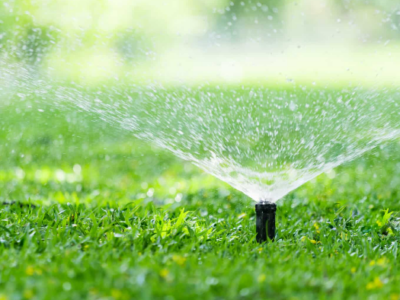Winter proofing the house weeks or months before winter has become a norm among many homeowners. But do you know that your yard deserves the same attention before winter too?
It’s essential to prepare your yard for the winter as not all plants can survive the cold weather. What you do during the winter months influences the lifespan of your plants—water them frequently during the cold months as their roots will eventually dry out and die.
Ensure that your yard survives freezing temperatures by preparing it for winter. Here’s how you can do it:
1. Look After Your Trees
Having trees in your yard can boost your curb appeal and enable your property to stand out from the neighborhood. However, trees can also become a hazard during winter. Weak and diseased trees can fall and damage nearby properties or injure anyone who gets near it unless you have taken care of it with the best garden supplies.
Prepare your yard for the winter by hiring professionals to remove overgrown or diseased trees. Tree removal Sydney and similar tree removal services from your area will adequately remove your property to ensure safety.
Removing trees during winter is also ideal, especially when trees die because of diseases. Bacteria, fungi, parasites, and bacteria are dormant during winter, which means that infections are less likely to spread when trees are removed during this time of the year.
2. Maximize Fallen Leaves
Grabbing the rake is probably the first thing that comes to mind when you see dried leaves piling up in your yard. Dried leaves will likely cover your prized perennials and make your yard less appealing. You don’t want any of that, don’t you?
This might come as a surprise, but dried leaves on the ground are beneficial for your yard during winter. Fallen leaves function as winter blankets for your soil and effectively insulate roots to prevent erosion. Skipping to rake fallen leaves also provides food and shelter for wildlife during winter. As a result, the delicate ecosystem in your yard is maintained.
3. Use A Lawnmower To Create Natural Mulch
When you leave fallen leaves on the ground, the benefits you can get will multiply when running the lawnmower over your leaf-laden yard. The lawnmower will chop the leaves into smaller pieces, creating natural mulch for your yard.
Using natural mulch in your yard can protect the soil, so your plants can get and absorb nutrients no matter how cold the weather brings. Leaves cut into smaller pieces can also decompose faster, becoming better and healthier food sources for your plants.
To ensure that every plant in your yard stays healthy during the winter, don’t forget to sprinkle some natural mulch around the roots of your trees or areas that your lawnmower can’t reach. You’ll be surprised how the natural mulch can maintain and improve the health of your plants during winter!
4. Change Your Watering Schedule
Water is essential to the growth of your plants, but giving them too much during winter will only do more harm than good. Watering your plants as the temperature drops will only kill them.
If you want to keep your plants healthy in winter, refrain from watering them. Your plants go dormant during the winter, which means that they don’t need as much water. It’s best to water them during daylight hours as the temperature is warmer. You can even skip watering your plants during the winter and only resume in spring, depending on how humid the temperature gets in your area.
5. Protect Your Yard From Animals
Aside from ensuring that your yard is safe from the cold weather, you also need to consider animals that wander and eat off your plants. Food sources are often limited during the winter, and herds of deer will likely use your yard as a source of their sustenance.
In winter, protect your yard from herds of deer and other animals by installing deer-proof fences. You can also invest in motion-activated sprinklers or use shrubs and plants as taste-based repellents (chives, lavender, and garlic are great options).
6. Cover Your Vegetables
All of your efforts to grow vegetables in your yard will be useless if you neglect them during the winter. Even if your yard comprises cold-tolerant vegetables, such as Brussels sprouts, broccoli, kale, lettuce, and cabbage, these are still prone to winter damage.
Before the first frost, cover your vegetables using a hoop house or cold frame. Both can effectively protect your vegetables from frost and ensure that they continue to thrive despite the cold temperature.
Don’t forget to include covering the soil to regulate the amount of moisture that seeps into it and reduce any compaction caused by the snow. These can retain the structure of your soil and ensure that your vegetables get enough nutrients during the winter.
Prioritize Taking Care Of Your Yard

Having a yard requires long-term commitment, so make sure that you exert time and effort in taking care of it before winter starts. Plan and act ahead, so you can remain cozy indoors during the winter season without worrying about the overall condition of your yard!














Comments